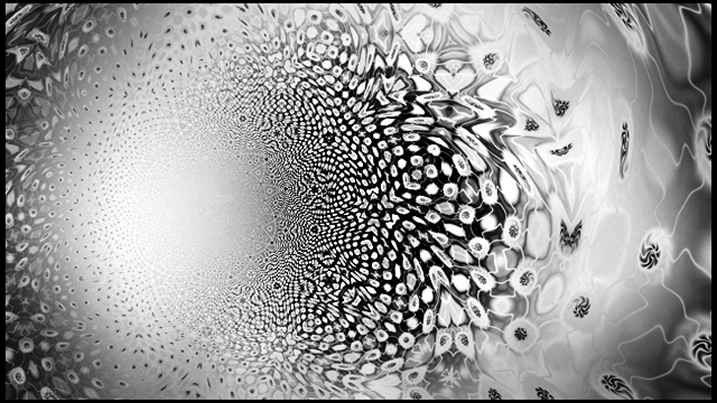| |
| |
|
|
| |
Emergence and
Non-Fundamentalist Metaphysics |
|
| |
2012, May 14th | 15th | 16th |
|
| |
Faculty of Sciences of the University of Lisbon
CFCUL
Organized by the Research project What is a Physical Theory?
Auditorium of the FFCUL | Edifício C1 - Piso3
How to arrive
|
|
| |
|
|
| |
Organising Committee: Rui N. Moreira | Gil C. Santos | João L. Cordovil | John F. Symons |
|
| |
|
|
| |
 |
|
| |
|
| |
|
| |
|
| |
|
| |
|
|
| |
'Emergence and Non-Fundamentalist Metaphysics' |
|
| |
In the inner synchronic structure of our world and in its historical processes we acknowledge the occurrence of qualitatively new phenomena at different levels of organization. Nevertheless, although these new phenomena arise from previous elements they cannot be completely reduced to them – either taken by themselves or through a mere linear or combinatorial models. How can we make intelligible this emergent novelty and this non-reducibility without giving up of causal or law-like kinds of explanation?
On the other hand, must we assume the existence of a fundamental level of reality to which everything should, in principle, be reduced? A fundamentalist metaphysics implies that everything is fixed at a certain level – for example, that of the ultimate particles or fields – and that everything else is ontologically derivative and, in principle, epistemologically derivable from its fundamental properties and laws.
In such hypothesis what looks like an ontological emergence (a new kind of system, behavior, property or causal power) is only a case of epistemological emergence arising from the complexity of the phenomena and from limited abilities to calculate, to predict, or to explain. Nevertheless, even cases of epistemological complexity already challenge the traditional linear (atomistic) approaches, such as the methodological individualism, or the continuist perspectives on developmental and evolutionary processes – either in Physics, in Biology or in Social Sciences.
Is it necessary to start from a non-fundamentalist metaphysics in order to defend ontological emergence?
All these questions will be discussed in this Colloquium in the domains of physical matter, of life, of mind and cognition, and of our social and economical existence.
|
|
| |
|
|
| |
Program (pdf)
Poster (pdf) Foldable (pdf)
Monday, May 14th
14.30 |
Opening Session
Olga Pombo and Rui N. Moreira |
15.00 |
John F. Symons Philosophy, University of Texas at El Paso
Completely Physical? Emergence and Hume's Dictum
|
15.45 |
Francisco Carrapiço
Biology, University of Lisbon
Beyond Neo-Darwinism. Building Symbiogenic Theory Of Evolution |
16.30 |
Coffee Break |
17.00 |
Special Sciences and the Unity of Science
Olga Pombo,
Juan Manuel Torres, John Symons and Shahid Rahman (Eds.)
Public presentation of the book
|
Tuesday, May 15th
10.00 |
Rui N. Moreira
Physics; History and Philosophy of Sciences, CFCUL, University of Lisbon
In what conditions can we consider a new Physical Theory as a Strong Emergence? |
10.45 |
Erez Firt
Software Engineer; Tel Aviv University
Problems for Emergentism: The downward causation argument – a problematic problem |
11.30 |
Coffee Break |
11.45 |
Gil C. Santos
Philosophy, CFCUL
An Ontology of Transformative Relations for Emergence Theory |
12.30 |
Lunch |
15.00 |
Francisco Louçã Economy, ISEG; Head of the 'Research Unit on Complexity and
Economics'
Economics, physics and meta-physics
|
15.45 |
Gildo Magalhães History of Sciences, University of São Paulo, Brazil
Continuity vs. emergence, a break up? A look beyond physics and behind economics |
16.30 |
Coffee Break |
16.45 |
Peter Andrew Corning Biology, Director of the 'Institute for the Study of Complex Systems'
The Synergism Hypothesis: A Theory of Emergent Complexity in Evolution |
Wednesday, May 16th
10.00 |
José R. Croca Physics, CFCUL, University of Lisbon
Emergence, De-Emergence. A concrete physical example |
10.45 |
João L. Cordovil Philosophy of Physics, CFCUL
Why are there no examples of ontological emergence from Physics? |
11.30 |
Coffee Break |
11.45 |
Nathalie Gontier Philosophy of Science, Dutch Free University of Brussels).
Biological realities: how evolutionary epistemology can inform us on ontology |
12.30 |
Lunch |
15.00 |
José Castro Caldas Economy, Researcher of CES
Evolution at the service of mechanics: an episode in the history of economics
|
15.45 |
Jonathan Tennenbaum Physics, Quantix – 'Société de Recherche et Développement en Technique Vibratoire'
Creativity in Nature and Creativity in Man |
16.30 |
Coffee Break |
16.45 |
Mark Bickhard Philosophy, Director of the Institute for Interactivist Studies
The Metaphysics of Emergence. |
17.30 |
Closing |
20.00 |
Conference Dinner
Fábrica Braço de Prata (more info here) |
|
|
| |
|
|
| |
How to arrive |
|
| |
The colloquium will take place on the Auditorium of the FFCUL (Foundation of the Faculty of Sciences of the University of Lisbon), located on the Faculty of Sciences of the University of Lisbon campus (Campo Grande), bulding C1 - 3rd floor.
By subway:
- Yellow Line (Linha Amarela) - Cidade Universitária station (about 10mins). [fares] [map]
By bus (carris):
- 7, 21, 31, 35, 36, 47, 54, 64, 78, 83, 106, 108, 701, 732, 738, 745, 750, 755, 767, 768, 777, 780 [fares] [routes and Schedules]
By car:
- 2ª circular - Campo Grande / Cidade Universitária exit
If you're staying on Amazonia Hotel, you can see a detailed map here (subway) and here (bus).
Faculty campus map (pdf):

|
|
| |
|
|
| |
Further informations, please send an e-mail to cfcul@fc.ul.pt. |
|
| |
|
|
| |
|
|
| |
|
|
|

